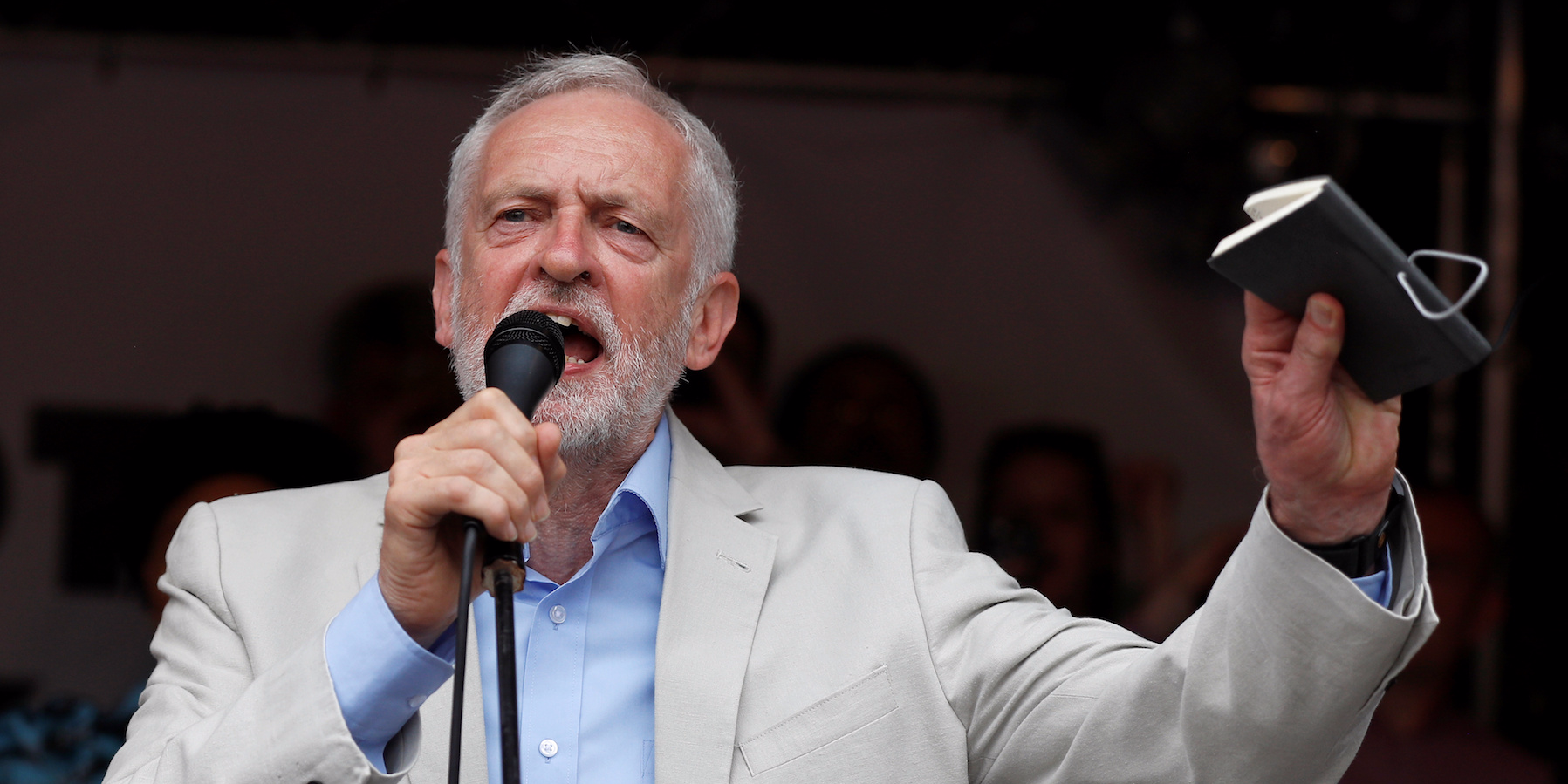- Labour would have won more seats than any other party at the June election if the “fairer” voting system used in Scotland and Northern Ireland had been used, says Electoral Reform Society report.
- Labour would have won 297 seats and the Tories 283 under the single transferable vote system, paving the way for Corbyn to be Prime Minister.
- First Past The Post is producing millions of “wasted votes” and failing to reflect fundamental changes in voting behaviour, The 2017 General Election Report argues.
Labour would have won the most seats in the June general election if the proportional voting system used in Scotland and Northern Ireland was used for Westminster general elections, according to an Electoral Reform Society report.
The report – titled The 2017 General Election Report – claims Labour would have won the largest number of seats had the single transferable vote (STV) system been used, with Labour winning 297 and the Conservatives 283. This result would have paved the way for Corbyn to enter 10 Downing Street either as the leader of a minority government or perhaps a Labour-led coalition government.
The report gives further examples of how different the general election result would have looked under a variety of proportional voting systems. The Alternative Vote (AV) system, rejected by the British public in a 2011 national referendum, would have given Labour 24 more seats than the party won on June 8, while the Tories would have won with a majority of 24, not 12, had AV been used in the 2015 general election.
The First Past The Post System (FPTP) currently used for UK general elections produces millions of “wasted votes” and has failed to adapt to the changing voting behaviour, the authors of the report argue.
Around 22 million votes cast in the most recent election had no impact on the overall result due to the winner-takes-all nature of the “broken” FPTP system, according to Electoral Reform Society research.
Under FPTP a candidate standing in a constituency must receive a larger number of votes than all other candidates to win and votes cast for the other candidates are effectively binned, regardless of the size of the margin of victory. For example, in Barrow and Furness, Labour's John Woodcock defeated Tory Simon Fell by just 209 votes in June, receiving 22,592 compared to Fell's 22,383. However, FPTP means the votes Fell received have no impact.
The report also highlights big fluctuations in results between the general elections held in 2015 and 2017.
A YouGov survey of 13,000 voters, commissioned by the Society, found that Labour won around 29% of votes cast in the South East but returned just 10% of seats, while Theresa May's Conservatives won 34% of the North East but won only 9% of seats.
Darren Hughes, Electoral Society chief executive said: "For the third time in a row, Westminster's voting system has failed to do what it says on the tin - produce a strong and stable government.
"June's election has shown first-past-the-post is unable to cope with people's changing voting habits - forcing citizens and parties to try and game the system.
"With an estimated 6.5 million people holding their nose at the ballot box, voters have been denied real choice and representation.
"This surge in tactical voting - double the rate of 2015 - meant voters shifted their party allegiances at unprecedented rates, with the second-highest level of voter volatility since the inter-war years.
"A system designed for two parties cannot accommodate these complex electoral swings.
"In the nations and regions of the UK, elections now feel more like lottery than a real choice.
"As we've shown, tiny shifts in the vote result in drastically different outcomes. Having results hinge on a few hundred voters is no way to run a modern democracy.
"The vast majority of votes are going to waste, with millions still stuck in the electoral black hole of winner-takes-all."
Corbyn has in the past endorsed reform of the electoral system but not gone as far as backing the introduction proportional representation.However, Labour MPs including Clive Lewis and Stella Creasy have joined the likes of Green Party leaders Jonathan Bartley and Caroline Lucas in pushing for FPTP to be scrapped and replaced by a more proportional voting system.
Speaking to BI about electoral reform earlier this year, Bartley said: "In the referendum, everybody in the country felt like their vote really mattered. People previously felt disenfranchised because in safe seats voters ignored while parties focus on marginal seats. If we change the electoral system we can change peoples' lives.
"It's not about self-interest - it's about a fair system."

